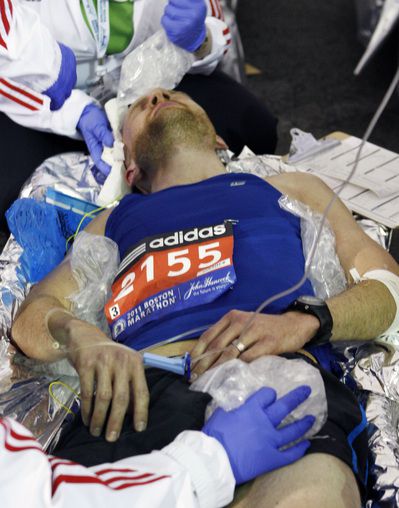They’re off and running in the Boston Marathon, despite warnings from organizers that many people should consider sitting this one out because of high temperatures.
Few probably will. It’s been 30 years since I regularly covered the marathon, but this is pretty much the way I saw it.
I covered the finish line and medical tent, which at the time was the underground parking garage of the Prudential Center. It looked like a war zone, and it was clear there was nothing healthy about what the runners had just accomplished.
In recent years, as this New York Times article a few years ago pointed out, a growing body of research suggests running a marathon can cause heart damage:
Finally, in one of the largest recent studies, published in January, Canadian researchers recruited 129 non-elite runners in Winnipeg and tested their blood just before they ran a half or full marathon. Their blood markers for heart injury were normal. By the time they’d reached the finish line, though, according to blood tests done there, most of the half marathoners and even more of the marathoners displayed elevated troponin and other blood markers of heart damage, and after an hour, when they were tested yet again, even more of both groups, especially the marathoners, showed blood indicators of cardiac damage. “We measure those same blood markers when someone comes in to the emergency room and we suspect a heart attack,” says Davinder S. Jassal, MD, an assistant professor of cardiology, radiology, and physiology at the University of Manitoba medical school in Winnipeg and lead author of the study. Blood profiles like those displayed by the runners, he says, “are similar to those in a very mild heart attack.”
Today’s discussion point: Marathoners, why do you do this?

